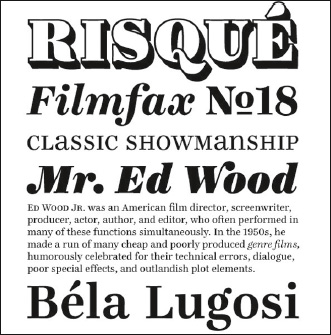23aChoose appropriate formality.
Choose a level of formality that matches your audience, purpose, and topic. In an email or letter to a friend or close associate, informal language is often appropriate. For most academic and professional writing, however, more formal language is appropriate because you are addressing people you do not know well. Compare the following responses to a request for information about a job candidate:
EMAIL TO SOMEONE YOU KNOW WELL
Maisha is great—hire her if you can!
LETTER OF RECOMMENDATION TO SOMEONE YOU DO NOT KNOW
I am pleased to recommend Maisha Fisher. She will bring good ideas and extraordinary energy to your organization.
Texting Abbreviations
TALKING THE TALK
Texting Abbreviations
“Can I use text-message slang when I contact my teacher?” In a chat or text message, abbreviations such as u for you may be conventional, but using such shortcuts when communicating with an instructor can be a mistake. At least some of your instructors are likely to view them as disrespectful, unprofessional, or simply sloppy writing. Unless you are working to create a special effect for a special purpose and audience, keep to the conventions of standard English for college writing—and for contacting your instructor.
Slang and colloquial language
Slang, or extremely informal language, is often confined to a relatively small group and usually becomes obsolete rather quickly, though some slang gains wide use (workaholic, duh). Colloquial language, such as a lot, in a bind, or snooze, is less informal, more widely used, and longer lasting than most slang.
Writers who use slang and colloquial language run the risk of not being understood or of not being taken seriously. If you are writing for a general audience about gun-control legislation, for example, and you use the term gat to refer to a weapon, some readers may not know what you mean, and others may be irritated by what they see as a frivolous reference to a deadly serious subject.
Jargon
Jargon is the special vocabulary of a trade or profession, enabling members to speak and write concisely to one another. Reserve jargon for an audience that will understand your terms. The example that follows, from a blog about fonts and typefaces, uses jargon appropriately for an interested and knowledgeable audience.

The Modern typeface classification is usually associated with Didones and display faces that often have too much contrast for text use. The Ingeborg family was designed with the intent of producing a Modern face that was readable at any size. Its roots might well be historic, but its approach is very contemporary. The three text weights (Regular, Bold, and Heavy) are functional and discreet while the Display weights (Fat and Block) catch the reader’s eye with a dynamic form and a whole lot of ink on the paper. The family includes a boatload of extras like unicase alternates, swash caps, and a lined fill.
– fontshop.com blog
Depending on the needs of the audience, jargon can be irritating and incomprehensible—or extremely helpful. Terms that begin as jargon for specialists (such as asynchronous or vertical integration) can quickly become part of the mainstream if they provide a useful shorthand for an otherwise lengthy explanation. Before you use technical jargon, remember your readers: if they will not understand the terms, or if you don’t know them well enough to judge, then say what you need to say in everyday language.
Pompous language, euphemisms, and doublespeak
Stuffy or pompous language is unnecessarily formal for the purpose, audience, or topic. It often gives writing an insincere or unintentionally humorous tone, making a writer’s ideas seem insignificant or even unbelievable.
POMPOUS
Pursuant to the August 9 memorandum regarding the increased unit cost of automotive fuels, it is incumbent upon us to endeavor to make maximal utilization of electronic or telephonic communication in lieu of personal visitation.
REVISED
As noted in the August 9 memo, higher gasoline prices require us to email or telephone whenever possible rather than make personal visits.
As these examples illustrate, some writers use words in an attempt to sound expert, and these puffed-up words can easily backfire.
| INSTEAD OF | TRY USING | INSTEAD OF | TRY USING |
| ascertain | find out | optimal | best |
| commence | begin | parameters | boundaries |
| finalize | finish, complete | peruse | look at |
| impact (as verb) | affect | ramp up | increase |
| methodology | method | utilize | use |
Euphemisms are words and phrases that make unpleasant ideas seem less harsh. Your position is being eliminated seeks to soften the blow of being fired or laid off. Other euphemisms include pass on or pass away for die and plus-sized for fat. Although euphemisms can sometimes appeal to an audience by showing that you are considerate of people’s feelings, they can also sound insincere or evasive.
Doublespeak is language used to hide or distort the truth. During massive layoffs and cutbacks in the business world, companies speak of firings as employee repositioning or proactive downsizing, and of unpaid time off as a furlough. The public—and particularly those who lose their jobs—recognize these terms for what they are.
Avoiding Fancy Language
FOR MULTILINGUAL WRITERS
Avoiding Fancy Language
In writing standard academic English, which is fairly formal, students are often tempted to use many “big words” instead of simple language. Although learning impressive words can be a good way to expand your vocabulary, it is usually best to avoid flowery or fancy language in college writing. Academic writing at U.S. universities tends to value clear, concise prose.